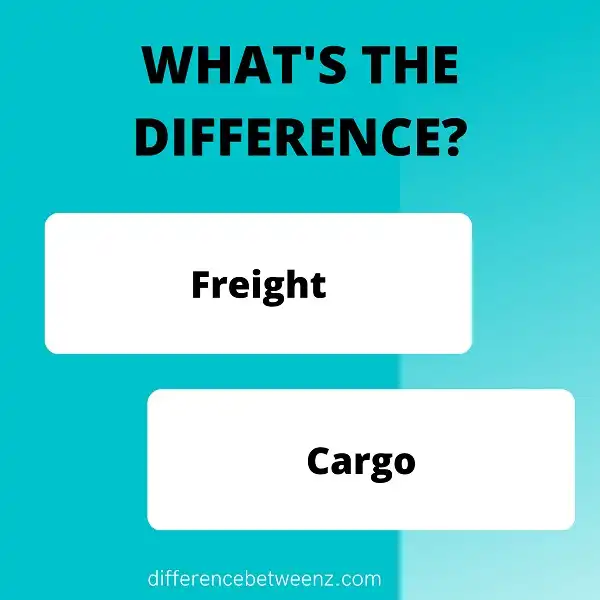freight and cargo are terms that are often confused. freight is the term used for goods that are transported by truck, rail, or ship, while cargo refers to the actual shipment or load being transported. Freight and cargo can be used interchangeably, but there is a distinction between the two. Understanding the difference between freight and cargo can help you better understand how shipping works and the terminology related to shipping.
Cargo can be further subdivided into two categories: containerized cargo and break bulk cargo. Containerized cargo is shipped in standardized containers, while break bulk cargo is not packaged in containers. Break bulk cargo is usually handled and loaded individually, which increases handling time and costs. Understanding these distinctions will help you when looking for shipping quotes online.
What is Freight?
Freight refers to the movement of goods from one location to another. It can refer to the transportation of raw materials, finished products, or anything in between. Freight can be transported by land, sea, or air, and it is typically moved by large vehicles such as trucks, trains, or ships. The term “freight” can also refer to the cost of transporting goods, which is typically paid by the sender. Freight transport is a critical part of the global economy, and it plays a vital role in getting goods to market.
What is Cargo?
Cargo is a term that is used to describe the goods or commodities that are being transported by a ship, plane, train, or truck. Cargo can be either perishable or non-perishable, and it is typically loaded and unloaded at ports or terminals. The term can also be used to refer to the containers that are used to transport the cargo, as well as the ships, planes, trains, or trucks that are carrying it. Cargo must meet certain requirements in order to be transported by a particular method of transportation.
For example, cargo that is being transported by air must be packaged in a way that meets the requirements of the International Civil Aviation Organization. Cargo that is being transported by sea must meet the requirements of the International Maritime Organization. Cargo that is being transported by land must meet the requirements of the Land Transport Authority. Cargo must also be labeled and declared in order to ensure that it arrives at its destination safely and on time.
Difference between Freight and Cargo
Freight and cargo are often used interchangeably, but there is a subtle difference between the two terms. Freight refers to the goods being transported, while cargo refers to the actual vessel or vehicle that is carrying the goods. In other words, freight is the content, while cargo is the container. This distinction is important because it affects who is responsible for the goods in transit. If the goods are lost or damaged, the Freight owner may be liable, but if the cargo is lost or damaged, the Cargo owner may be liable. As a result, it is important to clearly specify which term is being used when arranging for goods to be transported.
Conclusion
The terms freight and cargo are often used interchangeably, but they have distinct meanings. Freight is the goods being transported, while cargo refers to the vehicle or vessel transporting those goods. Understanding the difference between these two terms can help you better understand your shipping options and make more informed decisions when shipping products.


